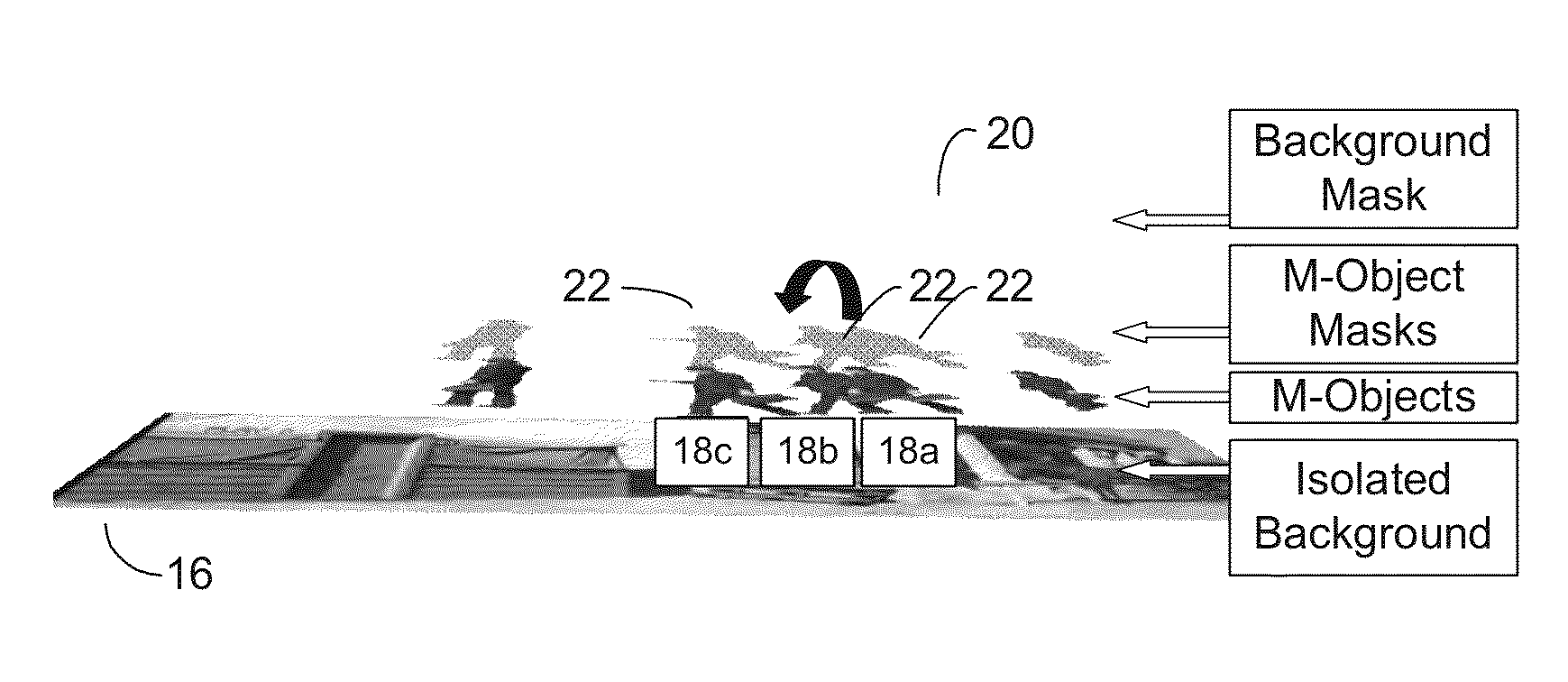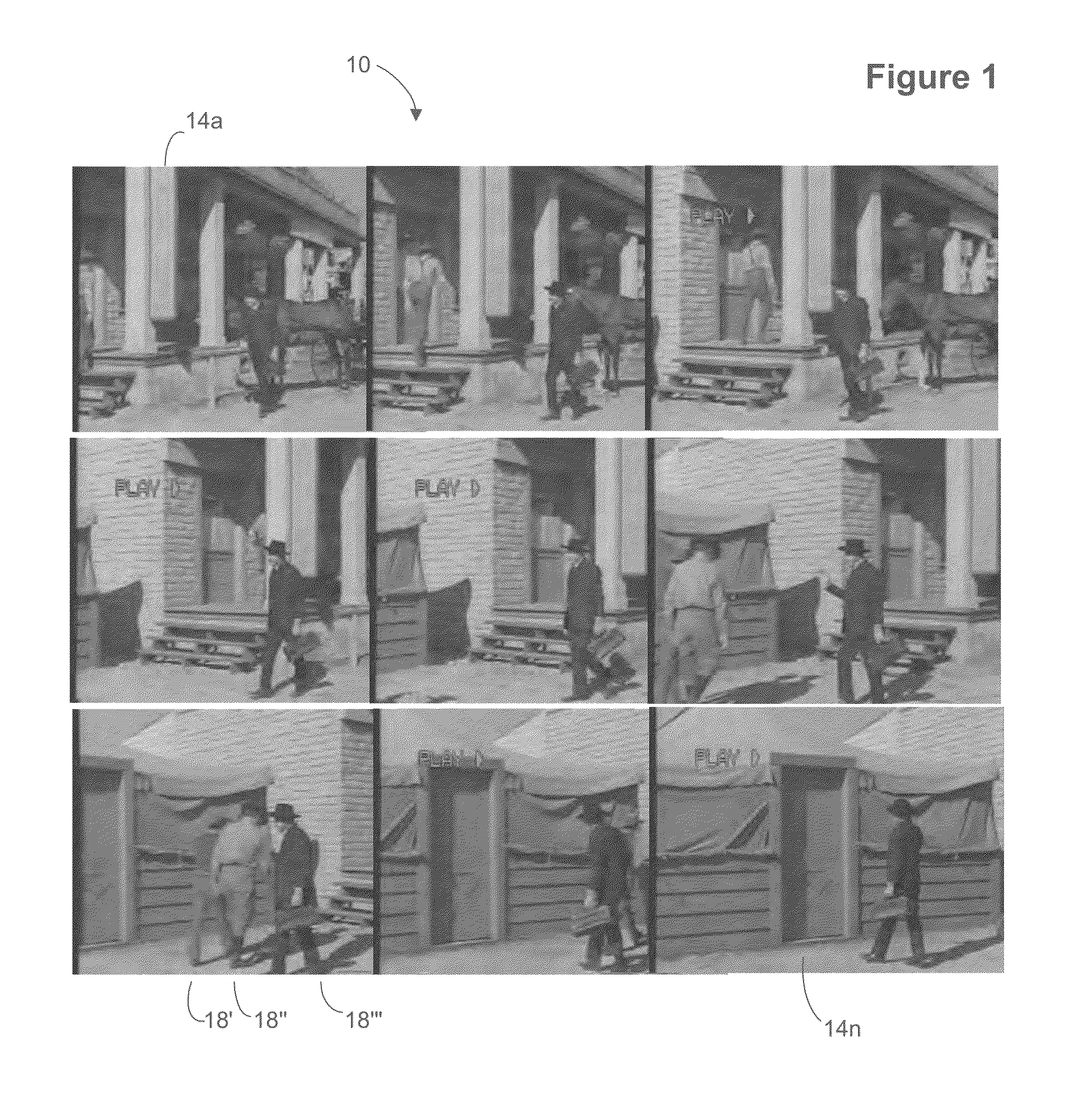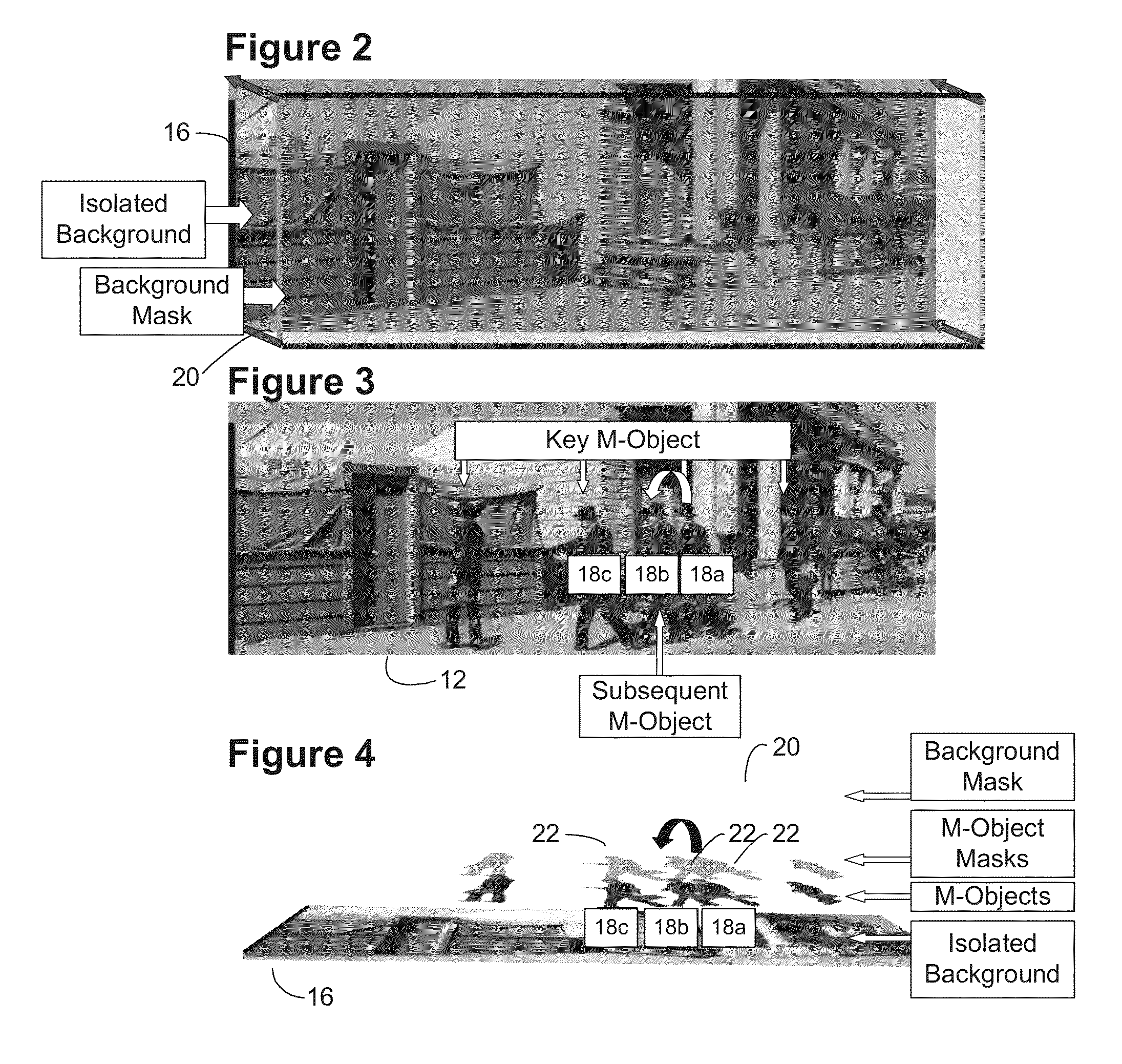Image sequence enhancement and motion picture project management system
a motion picture and project management system technology, applied in the field of image analysis and image enhancement, can solve the problems of large labor intensity, system not using the underlying luminance gray scale of objects in images, and the inability to automatically adjust the position and shape of the mask to correspond with image feature displacement and distortion from one frame to another, etc., to achieve the effect of rapid conversion of a sequence of images
- Summary
- Abstract
- Description
- Claims
- Application Information
AI Technical Summary
Benefits of technology
Problems solved by technology
Method used
Image
Examples
Embodiment Construction
[0171]FIG. 97 illustrates and architectural view of an embodiment of the invention. One or more embodiments of the system include computer 9702 and database 9701 coupled with computer 9702. Any computer architecture having any number of computers, for example coupled via a computer communication network is in keeping with the spirit of the invention. Database 9701 coupled with computer 9702 includes at least a project table, shot table, task table and timesheet table. The project table generally includes project identifier and description of a project related to a motion picture. The shot table generally includes a shot identifier and references a plurality of images with a starting frame value and an ending frame value wherein the plurality of images are associated with the motion picture that is associated with the project. The shot table generally includes at least one shot having status related to progress of work performed on the shot. The task table generally references the pr...
PUM
| Property | Measurement | Unit |
|---|---|---|
| depth | aaaaa | aaaaa |
| depth | aaaaa | aaaaa |
| threshold | aaaaa | aaaaa |
Abstract
Description
Claims
Application Information
 Login to View More
Login to View More - R&D
- Intellectual Property
- Life Sciences
- Materials
- Tech Scout
- Unparalleled Data Quality
- Higher Quality Content
- 60% Fewer Hallucinations
Browse by: Latest US Patents, China's latest patents, Technical Efficacy Thesaurus, Application Domain, Technology Topic, Popular Technical Reports.
© 2025 PatSnap. All rights reserved.Legal|Privacy policy|Modern Slavery Act Transparency Statement|Sitemap|About US| Contact US: help@patsnap.com



